Pandemic preparedness
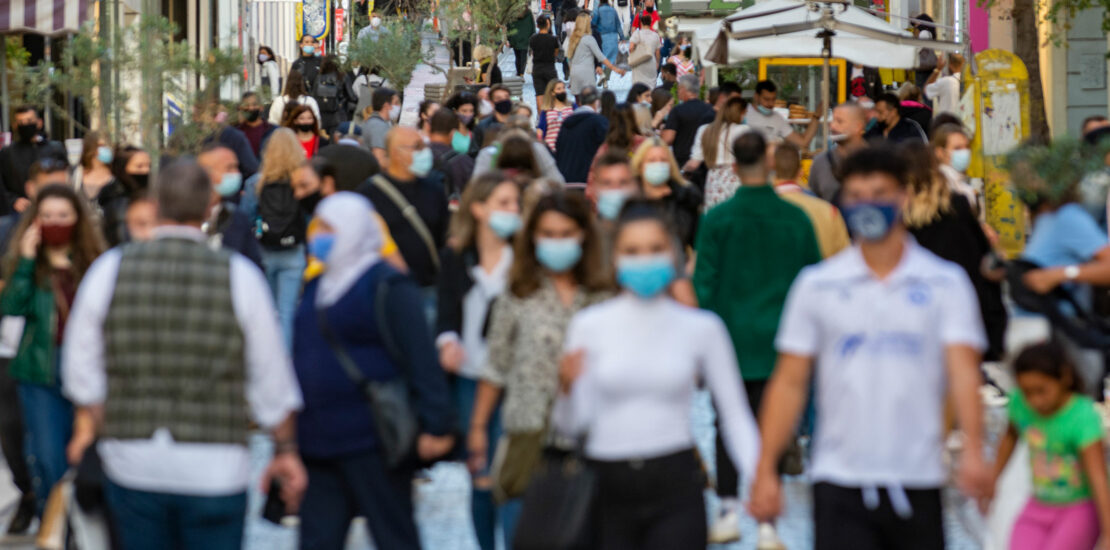
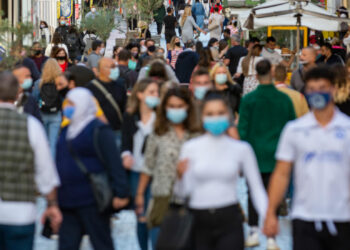
Medicines and vaccines developed by innovative pharmaceutical companies are essential to combat global health threats.
Overview
Pandemics will continue to pose a threat to global public health, as pathogens can quickly spread across countries.
According to risk modelling estimates from Airfinity, there is a 27.5% chance of a pandemic similar to the COVID-19 pandemic occurring in the next 10 years.
The COVID-19 pandemic demonstrated the importance of stakeholders’ preparedness to help prevent and respond to pandemics. Medicines and vaccines developed by pharmaceutical companies were essential in ending the COVID-19 pandemic, and will be central to our response when the next pandemic hits.

The Berlin Declaration
The pharmaceutical industry brought forward vaccines against COVID-19 in record time during the last pandemic, scaling to historic production levels, and implementing access plans that included donations, equity-based tiered pricing, and transferring manufacturing technology on voluntary and mutually agreed terms to partners in other geographies. Despite these efforts, there were significant gaps and delays in access, particularly in many low- and middle-income countries.
The pharmaceutical industry has turned lessons learned from the COVID-19 pandemic into commitments.
IFPMA, together with the Biotechnology Innovation Organization (BIO) and the Developing Countries Vaccine Manufacturers’ Network (DCVMN), representing vaccines innovators and manufacturers, jointly endorsed the Berlin Declaration framework. This Declaration pledges to reserve an allocation of real-time production of vaccines, treatments, and diagnostics for priority populations in lower-income countries and take measures to make them available and affordable.
The pharmaceutical industry proposed additional commitments for equitable access to essential medical countermeasures for future pandemics, outlining practical tools and initiatives before and after a pandemic emergency is declared. These commitments represent concrete pathways to advance equitable access.
The Berlin Declaration
This Declaration pledges to reserve an allocation of real-time production of vaccines, treatments, and diagnostics for priority populations in lower-income countries and take measures to make them available and affordable.
Equitable access tools
The innovative pharmaceutical industry developed a set of commitments for equitable access to essential medical countermeasures in future pandemics.
The 100 Days Mission
The pharmaceutical industry is a supporter of the 100 Days Mission, which aims to have safe and effective vaccines, therapeutics and diagnostics within 100 days of an epidemic or pandemic threat being identified.
According to the 2024 100 Days Mission implementation report, changes needed to achieve the ambitious 100 Day target across the development pathway – including in clinical trials and regulatory processes – are progressing slowly and the early-stage therapeutics R&D pipeline for pathogens of pandemic potential remains very limited.
INTREPID Alliance
INTREPID Alliance is a consortium of pharmaceutical companies that aims to accelerate antiviral treatments pipeline ahead of future pandemics, bringing together the expertise of its members to help prioritize promising assets in the pipeline, support their advancement, and catalyze new partnerships to fill potential gaps.
The Alliance launched the Antiviral Toolbox, an open-access resource to support the global research community in its efforts toward filling the gaps in antiviral R&D that is critical to global health security and the protection of communities worldwide.
The antiviral R&D pipeline is considered weak for all 13 viral families with pandemic potential, and critical or non-existent for 7 of them. Uncertain IP protections and future demand are discouraging R&D investment. Limited access to pathogens is constraining discovery and preparedness for future outbreaks.
WHO Pandemic Agreeement
The WHO Pandemic Agreement, adopted in May 2025, sets out high-level principles for global pandemic preparedness and response. The pharmaceutical industry engaged constructively in the Intergovernmental Negotiating Body (INB) process over the past three years, providing the experience and expertise to help inform negotiations.
The adoption of the WHO Pandemic Agreement is only the starting point. Its credibility and effectiveness will depend on whether the annex that defines a mechanism for Pathogen Access and Benefit Sharing (PABS) is designed to enable science, foster genuine partnership, expand equitable access, and provide legal certainty.
Pharmaceutical companies will remain critical to future pandemic prevention, preparedness, and response, driving the innovation necessary to develop and deliver the medicines and vaccines we will need when the next pandemic hits.
That is why it is essential that the experience of pharmaceutical companies can be drawn upon in the detailed negotiations that will now follow through the Intergovernmental Working Group (IGWG), so that the agreement can be turned into something that can be implemented in practice.
Member states must maintain the conditions for companies with the right expertise to research, develop, and deliver medicines and vaccines to continue innovating against pathogens of pandemic potential. Intellectual property protection and legal certainty are essential to invest in high-risk R&D and enable voluntary partnerships that we will need in the next pandemic.
COVID-19 pandemic
The innovative pharmaceutical industry came together with the broader global health community to respond to the COVID-19 pandemic with unprecedented speed and scale, overcoming significant hurdles along the way.
The first COVID-19 vaccine was developed and made available just 326 days after the COVID-19 genomic data was voluntarily shared. The first treatment for COVID-19 was approved by the FDA within 100 days of the outbreak being recognized. This is a story of science, ingenuity, and hard work. It’s also a story of widespread collaboration and investment powering tenacious R&D. Big pharmaceutical companies, biotechs, alongside academics have been instrumental in this feat.
Industry scaled to historic production levels, implementing access plans that included donations, equity-based tiered pricing and voluntarily transferring manufacturing technology to partners in other geographies.
Despite rapid pharmaceutical innovation and unprecedented levels of voluntary collaborations in responding to the pandemic, global vaccine distribution faced several challenges (such as trade barriers, vaccine nationalism, fragile supply chains, and health systems), which led to inequitable distribution.
Drawing from lessons learned from the global response to COVID-19, IFPMA has turned lessons learned from the COVID-19 pandemic into strategic commitments.
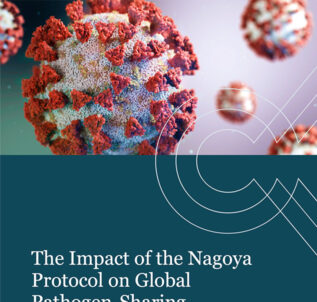
Global disease surveillance and pathogen sharing
Following on the heels of COVID-19, global rules on pandemic preparedness and response are being overhauled. Negotiations on a Global Pandemic Accord will kick off in February 2023, and the International Health Regulations (IHR) on responding to global public health emergencies are being revised. Against that background, the International Federation of Pharmaceutical Manufacturers & Associations (IFPMA) requested that...
Read more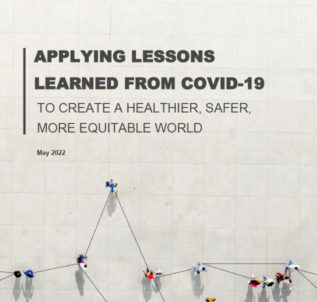
Applying Lessons Learned from COVID-19 to Create a Healthier, Safer, More Equitable World
This report identifies 10 insights the biopharmaceutical industry has gathered so far as the world moves into the third year of the COVID-19 pandemic.
Read more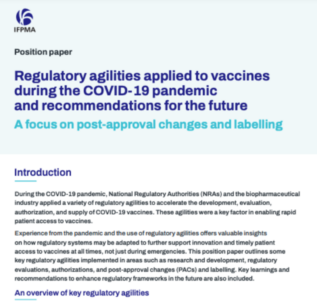
Regulatory agilities applied to vaccines during the COVID-19 pandemic and recommendations for the future
This position paper outlines some key regulatory agilities implemented in areas such as research and development, regulatory evaluations, authorizations, and post-approval changes (PACs) and labelling. Key learnings and recommendations to enhance regulatory frameworks in the future are also included.
Read moreNo-Fault Compensation (NFC) systems and legislative liability protections for pandemic vaccines
This joint white paper recommends the implementation of well-designed NFC systems coupled with legislative liability protections for pandemic vaccines to ensure both equitable compensation and adequate vaccine coverage in a future pandemic.
Read more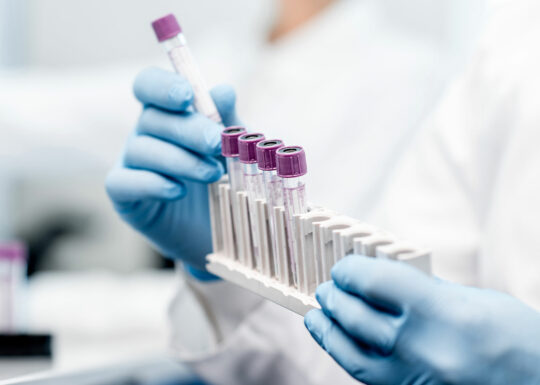
Access to pathogens
Immediate, unrestricted access to pathogens and their genetic information is fundamental to global health security and the crucial first step to developing the vaccines, medicines, and tests the world needs.

IFPMA COVID-19 Innovation Timeline
This timeline illustrates how the innovative pharmaceutical industry came together with the broader global health community to respond to the COVID-19 pandemic with unprecedented speed and scale, overcoming significant hurdles along the way.






